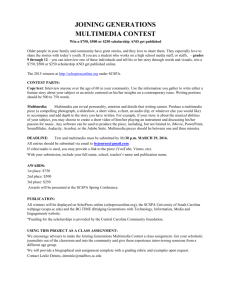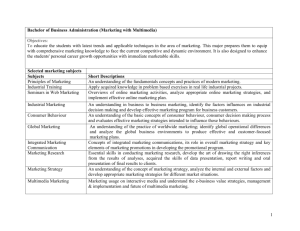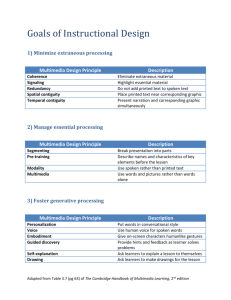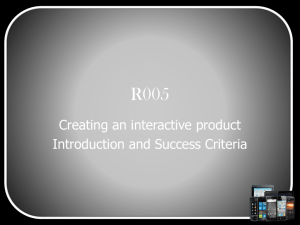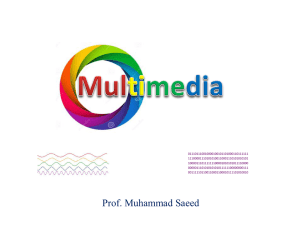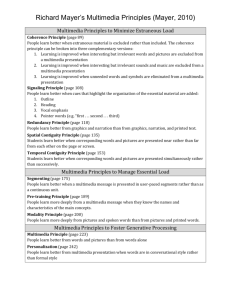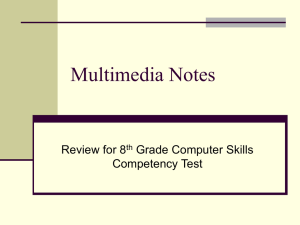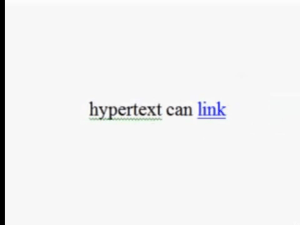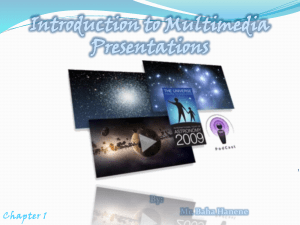Final Exam IDST 1103
advertisement
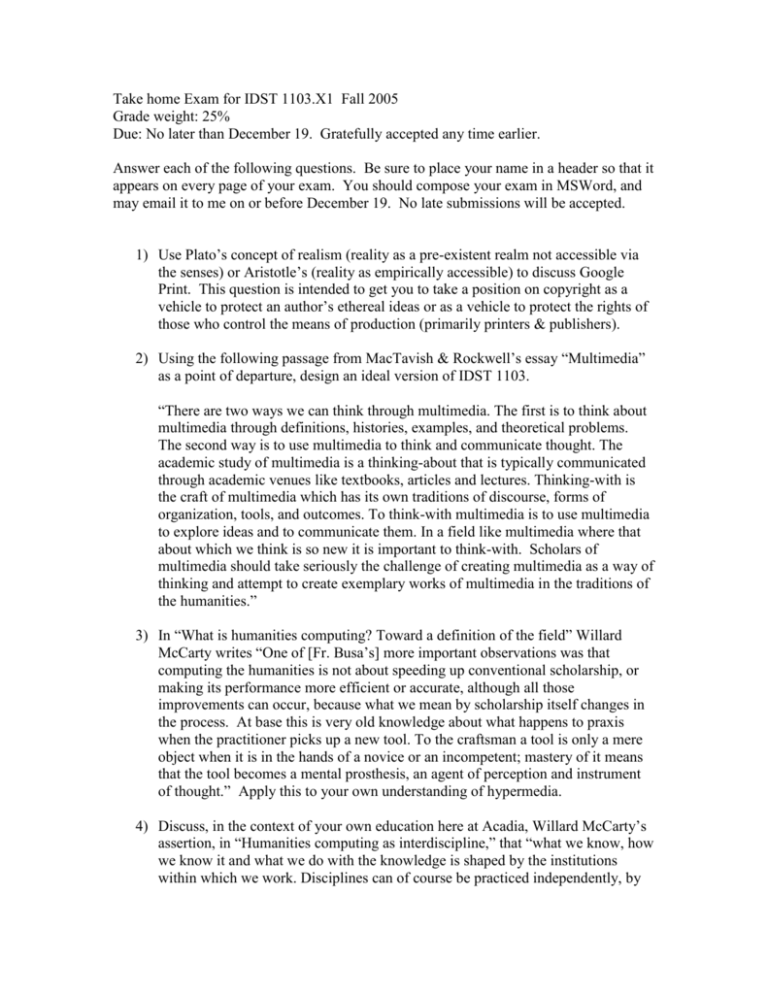
Take home Exam for IDST 1103.X1 Fall 2005 Grade weight: 25% Due: No later than December 19. Gratefully accepted any time earlier. Answer each of the following questions. Be sure to place your name in a header so that it appears on every page of your exam. You should compose your exam in MSWord, and may email it to me on or before December 19. No late submissions will be accepted. 1) Use Plato’s concept of realism (reality as a pre-existent realm not accessible via the senses) or Aristotle’s (reality as empirically accessible) to discuss Google Print. This question is intended to get you to take a position on copyright as a vehicle to protect an author’s ethereal ideas or as a vehicle to protect the rights of those who control the means of production (primarily printers & publishers). 2) Using the following passage from MacTavish & Rockwell’s essay “Multimedia” as a point of departure, design an ideal version of IDST 1103. “There are two ways we can think through multimedia. The first is to think about multimedia through definitions, histories, examples, and theoretical problems. The second way is to use multimedia to think and communicate thought. The academic study of multimedia is a thinking-about that is typically communicated through academic venues like textbooks, articles and lectures. Thinking-with is the craft of multimedia which has its own traditions of discourse, forms of organization, tools, and outcomes. To think-with multimedia is to use multimedia to explore ideas and to communicate them. In a field like multimedia where that about which we think is so new it is important to think-with. Scholars of multimedia should take seriously the challenge of creating multimedia as a way of thinking and attempt to create exemplary works of multimedia in the traditions of the humanities.” 3) In “What is humanities computing? Toward a definition of the field” Willard McCarty writes “One of [Fr. Busa’s] more important observations was that computing the humanities is not about speeding up conventional scholarship, or making its performance more efficient or accurate, although all those improvements can occur, because what we mean by scholarship itself changes in the process. At base this is very old knowledge about what happens to praxis when the practitioner picks up a new tool. To the craftsman a tool is only a mere object when it is in the hands of a novice or an incompetent; mastery of it means that the tool becomes a mental prosthesis, an agent of perception and instrument of thought.” Apply this to your own understanding of hypermedia. 4) Discuss, in the context of your own education here at Acadia, Willard McCarty’s assertion, in “Humanities computing as interdiscipline,” that “what we know, how we know it and what we do with the knowledge is shaped by the institutions within which we work. Disciplines can of course be practiced independently, by euphemistically named ‘independent scholars’, but the context in which our question is being asked quite clearly implies an institutional definition. As Culler notes, the increasing professionalisation of the intellectual life in this centuryalmost-gone has made a disciplined pursuit of knowledge outside the academy anomalous. Institutionalised disciplinarity now determines not just how scholarship is done but what is recognised as scholarship.”
